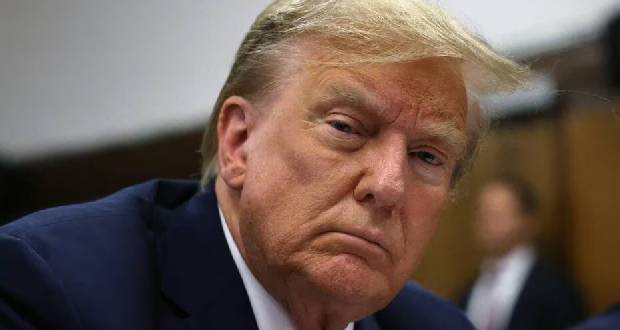Publicité
I for Insularity, Ignorance, Illusion, Incompetence? (Parts I and 2)
Par
Partager cet article
I for Insularity, Ignorance, Illusion, Incompetence? (Parts I and 2)

Part 1
At the time of writing this article, I couldn’t help thinking are we going through the worst nightmare ever, be it whether you are in Europe, America, Asia, Africa and more so our tiny island of Mauritius where we have had nearly 38 years of ongoing economic growth. Mauritius is unfortunately going to witness its first contraction this year, and be warned, those who believe it is just a small dent will be in for a big bombshell! And all that because of an invisible enemy Covid-19 that very quickly became more globalist than what the real globalist economic players have been trying to build over the last decades!
Is this Armageddon at our doorstep? Or is this a blip in the history of our global economy that will make us change the way we are going to look at and do things going forward. Bearing in mind that people’s memory at large is getting shorter and shorter. Every time there has been a crisis, be it the dotcom burst of 2000, 9/11, 2008 financial crisis, we have changed our previous norm and adapted to a new norm very quickly, even so seamlessly, that the old norm seemed never to have existed. If one can’t recall, remember how it was going through airport security pre and post 9/11, remember the banking restrictions pre and post 9/11 and 2008 be it from a KYC perspective or moving funds from one country to another. We have gone through crisis before, but this time it’s a different one (to be explained in Part 2).
Last year, on the 17th of August I wrote an article published in one of the main daily newspapers titled “Maurice sera plus exposé en cas d’une nouvelle recession”, where I was trying to alert our esteemed authorities and also our private sector, that Mauritius more so than ever, is far more vulnerable in case of a global economic slowdown or recession. That was after one of my many overseas trip, where I routed via Frankfurt and Stuttgart in Germany and noticed that Germany was at the brink of a technical recession. No need to be an economist nor read Fitch or IMF’s reports. I felt it while walking the streets, talking to people, both business people and the common man. That was almost 2 months prior to the collapse of Thomas Cook and the mood in Mauritius both public and private sector, was business as usual and the concept of a global slowdown was surreal, borderline illusion and when talked about very much ignored. The rhetoric answer was “we are fine in Mauritius, everything is good and we’ve never experienced a recession and it can’t happen here as we are too small and in any case we did pretty well post 2008”. Is that because of our insularity? Reminds me of my Greek friends who always believed due to their rich history that they were so strong and nothing could happen to them until the financial crisis of 2007/08. But then life was great in Greece before 2008, they hosted the Olympics in 2004, had massive infrastructural projects, the country was growing with positive GDP growth rate every year (in 2007 at 3.3%), and the Greek citizens felt really good and wealthy, but was it really or was it their ignorance? There were signs out there well before the financial crisis that their balance sheet wasn’t that good and that they had been living well beyond their means. And yet they should have known better as in Greek mythology, even the colossal Archilles was vulnerable at the end of the day. We know what happened to Greece post 2008, they lost one third of their GDP, GDP per capita took a huge knock setting them almost 10 years back, and to-date have still not recovered 12 years later in 2020! A number of their major stadiums built for the Olympics are totally run down as they don’t have money to maintain, pensioners saw major cuts, taxes went up to try to balance the books, youth unemployment went up leading to exile of many greeks. Bottom line the Greeks are poorer and have been under austerity since 2008!
Why did I say Mauritius was more vulnerable in case of a global recession? Simple, because we have a far more opened economy than in 2008 and hence more prone to external shocks, foreign investors had been consistently divesting out of Stock Exchange of Mauritius (reminding me the tide was already pulling out and no one bothered to see), the continuous depreciation of the Rupee vis a vis the US$ and more so when our imports, predominantly in US$, have been going up non-stop, private sector investment that continued to remain low despite interest rates lower than ever before, a number of main local corporates that remain highly leveraged with tight and sometimes very tight cash flow, and the public at large highly addicted to ongoing credit as they were sold the illusion of the benefits of extreme consumerism. Why wait to save when you can spend now? Look at the billboards and adverts and one will get a sense of the free flow and almost force-feeding of credit to the masses. YOLO (you only live once) it was. So why bother saving?
Whether we like it or not, the country’s balance sheet is not strong enough to cushion against any global recession and more so any unforeseen black swan events. At that time, I aired the words “black swan” and “unforeseen external shocks”, without even thinking of Covid-19. Rest assured, I don’t have the crystal ball nor the deck of cards like our famous local Russian Olesya Paradis. I thought that a global economic slowdown was on the agenda for the later part of 2020 (post USA elections) as I truly believed that the world was running out of steam and that if ever there was a potential black swan, it might be a real war that would spark in the Middle East and would lead to the 2 protagonists, USA and Russia, to fight their war using proxies in the Middle East and impact the rest of the world and also Mauritius. My call back then was to both our public and private sector to start planning together as one team ahead of any potential global slowdown and worst case global recession.
Subsequently I published another article under the title “Maurice peut se présenter comme un nouveau modèle économique au monde” on the 23rd of October (1 month post Thomas Cook’s bankruptcy), almost 2 weeks prior to the General Elections of 7th November 2019 in Mauritius, and highlighted our other problems being our ageing population, our increase in youth unemployment exceeding 25%, emigration of Mauritians with brains and experience, our inability to bring back the diaspora, our economic pillars all in the red zone more or less at the same period, our inability to bring in real genuine Foreign Direct Investment, our ongoing budget/trade deficits, our pension funds unsustainability to support our growing number of pensioners, the continuous increase in our national debt and the vicious spiral of adopting populists measures for a population already hooked on excessive consumerism. I ended on a positive note, again because I truly believe it can be done, stating that Mauritius has the ability to create a new economic model to showcase to the world but we need disruption in our thinking to make this happen.
My call at that point in time before the general elections was to whoever was going to take control of the leadership of our country. This was synonymous to a concerned passenger who was at the front deck and shouting at the control cabin without knowing the captain but hoping that someone in the cabin would have heard the alarmed voice, and that the Captain needed to immediately and drastically change course as the iceberg is in front of the Titanic.
Part 2 - U for Unprecedented, Unchartered, Unforeseen, Unfortunately, Unorthodox?
Within less than one month we have seen the number of Covid-19 cases worldwide grown tenfold from 100000 to 1M and number of deaths increased by more than 15 times from 3000 to nearly 50000 and these numbers have not even reached the peak yet. What started in 1 province in China, is a pandemic and has reached all the corners of the globe. On the positive side, we rarely talk about this and I really wished we did more often, nearly 200000 have recovered. But that doesn’t mean that we should celebrate yet. When Trump finally acknowledged live on TV that the potential casualties would be in the region of 100000 to 200000 in the USA and that they have only (sad to use the word “only”) reached the 5000 mark, this tells us that the end of this war against Covid-19 is much further down the road than we think. Based on what I am seeing I think it will take at least another 3 months before we get to where China is today and probably 6 to 9 months before we get back to some kind of normalcy. And Covid-19 has just started in Africa and that is another big worry!
Globally, the economy is further being pressured downwards almost every week with further bad news and further downside risks hanging in front of us. The positive side (in a cynical way) of this is we are pretty much all in the same boat, be it whether you are in France, USA, South Africa and even Mauritius. We are dealing with the same issues and no one is better off than someone else, except perhaps China and that’s another story.
We have heard the word “Unprecedented” so often being used by analysts, economists, operators, and even layman on the streets. At least in my lifetime, indeed the current situation is unprecedented. What can we or should we compare with? If it’s unprecedented it means that this situation has never ever happened before and hence we can’t compare with any other periods, right? But yet we keep hearing about the financial crisis of 2008. Let me be blunt here. This is not 2008! What we are experiencing is more worrisome than 2008, because back then while the issue started with the sub-prime crisis that led to the financial crisis and where banks reached a stage of not trusting other banks, but then were bailed out by the printing machines of the central banks, today the issue is very different. We are seeing a stop of economies, a number of sectors of economies and businesses. And on top of that we can add the element of fear which is understandable to an extent as many were never prepared to this invisible enemy of Covid-19. Fear is even the biggest problem for the global economy. A financial stop like in 2008 was easier to deal with than an economic sudden stop of 2020 at a global level.
We are dealing with so many issues unfolding at the same time being, weaker demand for commodities and goods, supply chain disruption, work stoppage, travel restrictions, reduction in consumer sentiment and hence lower consumption, lower earnings and investments, crash of equity prices and hence lower wealth, lower valuation of assets, compression of financial conditions with banks under pressure as loans to value shoot through the roof, and pressure on domestic currencies especially in emerging markets sliding against the world’s reserve currency being the US$. Based on what we know as at today the 02nd of April 2020, I foresee a global recession with a global GDP contraction of -2% to -2.5%, bearing in mind when we started the year of 2020, World Bank had a growth forecast of 2.5% pre-Covid-19. This is a major down turn and the impact is even more than 2008, as back then China and India and a lesser extent Africa had fantastic growth rates compared to today which are currently half of what they used to have and which will most likely be cut by another 50%. Expecting these two key emerging economies to pull the world out of the economic mess quickly will be very unlikely this time around. The fact is the global economy was in a better state back in 2008 than in 2020 to deal with a pandemic like Covid-19. So, a tough period lies ahead of us where I remain with my original forecast of an L shape recovery which is the most probable unless someone pulls the rabbit out of the hat and I can’t see what that will be.
While I tested the economic pulse in Mauritius during the week, it seems many haven’t realised the extent of the Tsunami that has already reached our shores. To really understand what is happening, we need to break away from our silo mentality and rather have a helicopter view of the economy as the impact is across sectors and unprecedented. Just like Covid-19 that is highly contagious, the economic contagion filtering from one sector of the Mauritian economy to another and feeding each other like a domino effect and making it even worst, is something we should all be cognisant of. This is not an issue for Tourism only, even though I believe the tourism sector is the biggest casualty by far.
Philippe Forget’s editorial in business magazine of yesterday under the title of “Post-Covid-19: Un avenir bien assombri…”sums up the situation pretty well for Mauritius. And not surprisingly the rating agency Moodys has already changed its outlook on Mauritius since yesterday from stable to negative. We are in unchartered territory unfortunately. And here we might even be looking at a negative double digit growth rate (yep that’s scary if we get to that) on our GDP if we don’t stop the economic contagion and domino effect which could get very ugly for Mauritius! And to be able to prevent this from happening and “limiter la casse”, we need unorthodox solutions to get Mauritius out of what could be the deepest contraction ever. Let’s make sure we don’t end up as Cyprus nor Greece! Now is not the time to be like the Ostrich.
Publicité
Les plus récents






